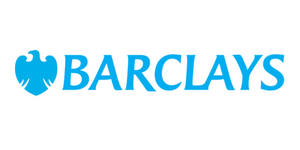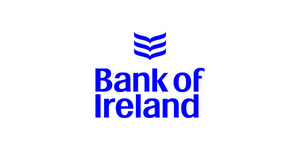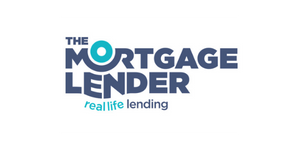What is remortgaging?
Remortgaging is the process when you replace your current mortgage product with a new one. It can help improve your financial situation by raising capital, paying off your mortgage faster, or reducing repayments.
It’s most common to remortgage to a new lender who offers a better deal. However, it’s possible to remortgage with your current lender, which is known as a product transfer. Typically, you will remortgage when you reach the end of your existing mortgage term.

What are the benefits of remortgaging?
The main benefit that comes with remortgaging is that you can save money each month by securing a better rate than your current deal.
It also allows you to reduce your overall mortgage term and can allow you to release equity for home improvements or debt consolidation, for example. Raising funds for things like these is often much cheaper than taking out an unsecured loan.
There may be other personal reasons to release some of the equity locked up in your property. Releasing equity by remortgaging can be cheaper than taking out shorter term unsecured loans.
We at IMC Mortgage Brokers are experts in assessing these factors to find you the most competitive and suitable product for your needs.
When can I remortgage?
It’s possible to remortgage at any time, however there are factors that can make it a bad financial decision. A reason for this is early repayment charges (ERCs) on your current mortgage deal. These are fees charged to you if you decide to leave your current mortgage deal early. They will be prearranged in your mortgage agreement, so always check before going ahead with anything.
When considering a remortgage, it’s important to compare the savings in interest against ERC’s costs and other fees. Otherwise, you may end up paying more in fees even though you obtained a new product with a cheaper rate.
Consulting an expert broker to review this decision for you can be invaluable. They will be able to read over the details and make an informed judgement on what’s best for you. If you’re looking to remortgage, why not reach out today?
When shouldn't you remortgage?
There are a number of scenarios in which remortgaging may not be the best idea for you, such as these common reasons:
Firstly, if your loan size is not large enough. This is because sometimes lenders set-up fees can cancel or outweigh any savings you might make. Also, it’s likely that on a larger loan you will see better interest rates. However, if you have a smaller loan these savings may not be that significant.
As discussed above, early repayment charges can offset any potential savings and end up costing you more, therefore waiting until your term ends could be a cheaper and more suitable time to remortgage. Again, consulting a mortgage broker can prevent you making wrong decisions when remortgaging.
One final reason is if you have recently had credit issues. When going through the remortgaging process lenders will assess your credit, like they did when you first obtained a mortgage. Therefore, if you have had recent credit issues, it could mean that you’ll be offered a less competitive deal, or your remortgage application could be declined.
What type of Mortgage do you Currently have?

Buy-to-Let Mortgages

Self-Employed Mortgages

Interest-Only Mortgages

Shared Ownership Mortgages

How do I remortgage?
The process is similar to getting a standard mortgage to buy a house. You will first need to assess your options and find a suitable lender, either on your own or with the support of a broker.
Once you have found a lender, there will be a property valuation and a solicitor will be necessary, although some lenders may include these services in their arrangement fees.
Your new lender will check your ability to afford the loan and your credit record, as financial circumstances can change between mortgage terms. If a lender is happy with your application, they will process the mortgage offer.
Upon receiving the mortgage offer, your existing mortgage will be repaid by your new lender. You now owe the new lender the money, therefore your new product will start.
The whole process typically takes between four to eight weeks, although this is dependent on your situation.
What are the costs of remortgaging?
There are some costs involved when remortgaging, which include:
- Valuation fees – the cost to have a professional assess the value of your home.
- Legal fees – any solicitor work that is required will likely incur a fee.
- Arrangement fees – many lenders charge fees to process your application.
- Broker fees – if you decide to use a broker, it’s likely that they will charge you for their services.
Your costs can decrease if lenders provide free valuations and legal packages, although not all lenders offer these. It’s best to check what a lender offers before committing to them.
Using a mortgage broker can save you money in some cases, even though they charge a fee. This is because they will consider all fees to determine if remortgaging is the best choice.
There are mortgage deals available that have no fees and include additional benefits such as cashback.
However, these deals may not always be the best option as there may be hidden costs or limitations. Some lenders may offset the costs of these fee-free products by charging you a higher interest rate from the outset.
A fee-free remortgage may be beneficial if the savings outweigh the new interest rate or early repayment fees. It’s advisable to consult with an expert for guidance on the right remortgage product for your circumstances.
How to get the right remortgage deal
Getting the most favourable deal for your circumstances could end up saving you thousands of pounds, so it’s understandable you’ll want to make sure the deal you get will work well for you in the long term.
Some general basic tips to help you get access to the most advantageous deals:
- Have a thorough knowledge of the market
- Researching mainstream lenders and your current lender for remortgage options is a good starting point. You’ll need to consider rates, introductory period, fees, early repayment costs, and specialist lenders.
- Check your credit score
- Before applying for deals, it’s crucial you check your credit rating. This can help you identify and fix any issues and improve your credit score before you apply.
- Build up equity in your property
Having a larger amount of equity in your property will help you access better remortgage deals. This is because lenders see you as a lower risk due to the added security, increasing your chances of lower interest rates and leading to larger savings.
What can remortgaging be used for?
While many people remortgage to find a more competitive deal and save money, there are other reasons for remortgaging. Below are some of the most popular uses of remortgaging and what’s involved with them.
The amount of equity that you have in your home refers to how much of it you own compared to your mortgage. For example, if you have a home worth £200,000 and you have an outstanding mortgage of £150,000, you have an equity of £50,000. This value will only increase as you continue to pay off your mortgage, subject to any changes in property prices.
You can apply to unlock this equity with a remortgage, taking the lump sum for whatever reason you need it. Note that most lenders will require a certain amount of equity to remain in the property and will only allow you to raise funds for specific reasons as permitted by their individual criteria. Be prepared to give them reasons for this decision.
You can usually release up to 90% of the value of your property as determined by a lenders valuation of your property.
Lenders may restrict this figure based on the reason you are releasing equity. For example, if you are releasing equity to consolidate some existing debts then some lenders may restrict you to borrowing up to 85% of the value of your property.
If you are wanting to release equity to pay an outstanding tax bill then lenders are most likely to decline any request for you to release equity. It really does depend on your reason for wanting to release equity as to how much a lender will allow you to release, hence why it is important to speak to a mortgage expert to help you with the process.
A reason to release equity that a lender will approve of is to consolidate any debts you may have. This involves you releasing the equity from your home and then paying off any outstanding debts. This will then mean that you will owe your mortgage lender one payment which includes your consolidated debts, rather than multiple payments to different credit lenders.
One of the best loan rates that you will typically get is through a remortgage or personal loan secured against your home. As the rates are generally lower, the repayments should be more palatable each month. It also saves you having to worry about paying off multiple debts from different lenders.
By consolidating some or all of your debts, it’s also possible that you will save money on interest, making your debts less of a burden.
Below we have provided an example of how you could save money by consolidating your debts by releasing equity through remortgaging.
| Type | Balance | Term | Rate | Monthly Payment |
| Mortgage | 120,000 | 22 years | 4% | 685 |
| Loan | 12,500 | 6 years | 15% | 265 |
| Loan | 3,000 | 4 years | 17% | 87 |
| Credit Card | 5,000 | NA | 22% | 92 |
| Total | 140,500 | 1,129 |
Compare this with:
| Type | Balance | Term | Rate | Monthly Payment |
| Mortgage | 140,500 | 22 years | 4% | 802 |
| Total | 140,500 | Saving of £327 per month |
Please note. Securing short term debts over a longer term on your mortgage could mean that you pay more interest in the long term, even though you may save money in the short term on a monthly basis.
Another reason you may release equity through remortgaging is to carry out home improvements.
Once you have decided that you want to make some changes or improvements to your home, the first thing to do is accurately work out the proposed cost. This might involve getting a number of quotes. Depending on the scale of your improvements or alterations, some of the pricing aspects that should be considered include:
- Architect`s plans and services
- Planning permission
- The cost of builders
- Materials
- Building regulation inspections
- VAT
- Having some money put aside if things do not go to plan
Again, remortgaging to release equity can be a much cheaper way to borrow money than other lending options.
Suitable home improvements that can be made include:
- Extensions
- Garage conversions
- Renovating the garden
- New roofing
- Loft conversions
- A new bathroom
- New windows and doors
- A new kitchen
A great way of raising the capital to buy a second property is through remortgaging. You need to have enough equity in the property being used to enable you to raise sufficient capital. You will also need enough equity left over in your property once you have released some.
Furthermore, if a mortgage is still required on the new purchase, deposits are often higher when in relation to a second property. Typically, a minimum of 15% to 20% of the second property’s value is required.
If you are thinking about remortgaging your home to purchase a Buy-to-Let property, this could enable you to raise any necessary funds at residential rates, which invariably will be lower than those offered for Buy-to-Let mortgages.
With a remortgage, your repayments are going to increase on your present mortgage and the criteria for residential borrowing may differ to Buy-to-Let. Options such as interest-only as a repayment method may not be available too.
No matter what the type of second property you are looking to buy, ensuring you have expert guidance can prove crucial. Our team at IMC Mortgage Brokers have the knowledge to guide you through the whole process.
What is a product transfer?
To put it simply, a product transfer is where you change your mortgage rate with your current provider. This essentially means that you are remortgaging, as you are moving to a new mortgage product with your current lender.
Staying with your current lender does have a range of benefits, the most obvious being moving to a cheaper, more competitive product. The process can also be much simpler as you do not need to change lenders. Fees can also be cheaper as your current lender may not require a valuation fee.
However, it may not always be the best option if a lender doesn’t offer the most suitable or best value product, therefore looking for a new lender can be a better idea.
At IMC Mortgage Brokers, we’ll consider your current lender’s offers as well as new lenders. If you’re looking to remortgage, reach out today and you can organise a free initial no-obligation consultation with one of our expert mortgage advisors.
Organise your free consultation

























